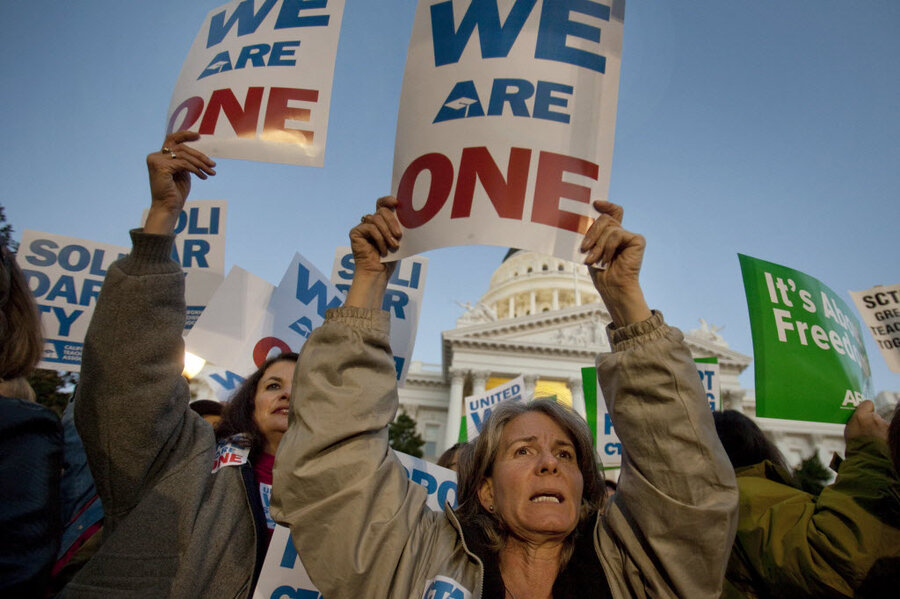Should non union-members cover negotiating costs? Supreme Court takes case.
Loading...
The Supreme Court will consider a case whose outcome could limit the ability of government employee unions to collect fees from non-members, the justices revealed Tuesday.
The case comes in the form of an appeal from a group of California teachers who say the obligation to pay union fees, even when they disagree with the union and do not want to join it, violates their First Amendment rights. The teachers are now requesting that the Supreme Court overturn a 38-year-old legal precedent that allows unions to require non-members to pay bargaining costs, also known as “fair share” fees, as long as the money is not used for political purposes. This obligations was originally instated to keep non-members from “free-riding.”
Although the 1977 case, Abood v. Detroit Board of Education, has been maintained throughout the years, it has been called into question on several occasions.
Last year, Justice Samuel Alito said a "bedrock principle" of the First Amendment is that "no person in this country may be compelled to subsidize speech by a third party that he or she does not wish to support."
Meanwhile, in a similar case last year, the Supreme Court ruled that partial public employees cannot be compelled to pay union dues.
“In reaching its decision, the high court embraced an argument by a group of homecare workers in Illinois that being forced to support a labor union through compelled dues payments violates their right to free speech and association,” the Monitor’s Warren Richey wrote at the time.
But labor union officials say the obligatory fees are necessary because unions have a legal responsibility to represent all workers at the bargaining table, even those who don’t join the union. Overturning Abood v. Detroit Board of Education, they say, would only contribute to weakening the union’s ability to protect workers.
"The Supreme Court is revisiting decisions that have made it possible for people to stick together for a voice at work and in their communities — decisions that have stood for more than 35 years," reads a joint statement from the National Education Association, American Federation of Teachers, California Teachers Association, American Federation of State, County and Municipal Employees, and Service Employees International Union.
The case, Friedrichs v. California Teachers Association, 14-915, will be argued after the Supreme Court begins its new term in the fall.
Although private sector union membership has dropped over the past four decades, government workers unions have continued to play an important role in organized labor.
Public-sector workers have a union membership rate of 35.7 percent, while only 6.6 percent of the private sector is unionized, according to the U.S. Bureau of Labor Statistics.
This report includes material from the Associated Press.








